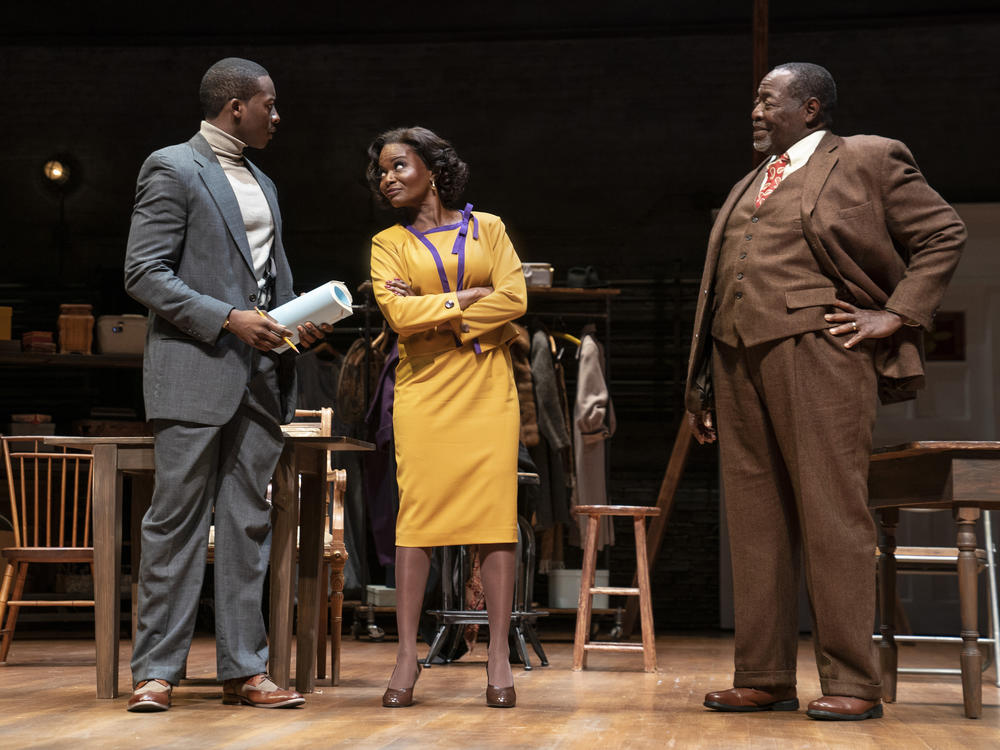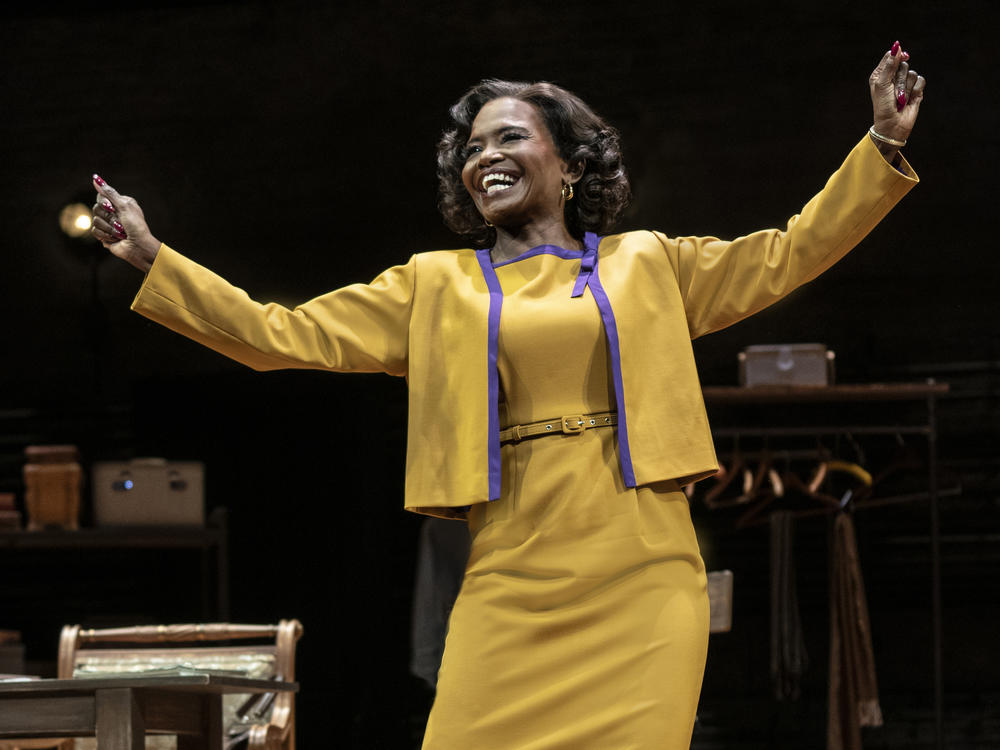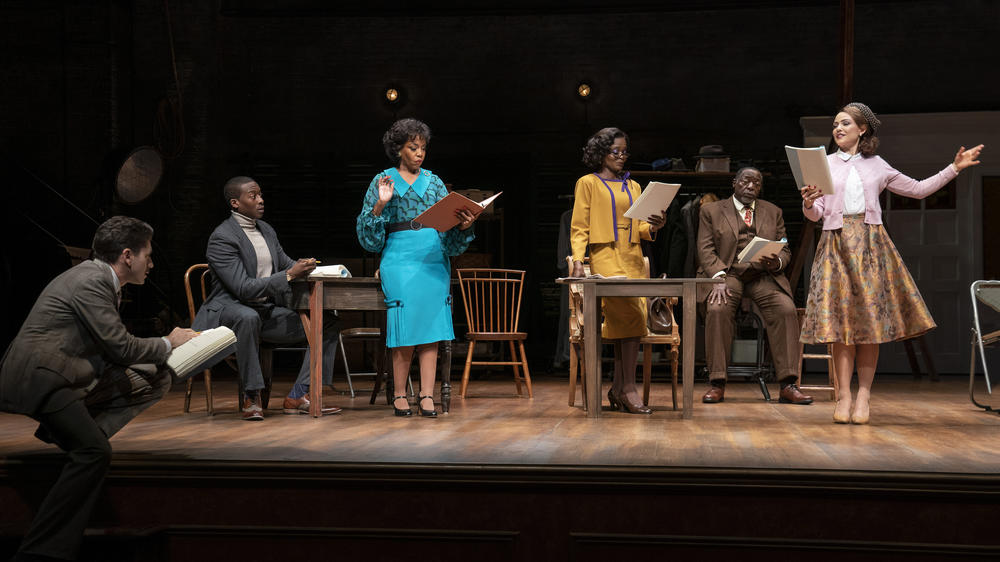Section Branding
Header Content
A prescient play about race in America has its long-overdue Broadway premiere
Primary Content
Trouble in Mind, a 1955 play by Alice Childress, looks at a company of mostly Black actors putting on an anti-lynching play by white creators. It was supposed to transfer to Broadway. But in a case of life imitating art, white producers insisted that the Black playwright provide a more upbeat ending. Childress refused.
Now, 27 years after its author's death, Trouble in Mind has finally gotten its Broadway debut, mounted by the Roundabout Theatre Company with Charles Randolph-Wright as director. For Randolph-Wright, who first read the play in college, it's been a passion project for 40 years.
"Being able to do these words now, these prescient words that she wrote so long ago, it's astounding at how relevant they are right now," Randolph-Wright says. "It's also very depressing how relevant they are."
About 10 years ago Randolph-Wright, who is himself a playwright, arranged a reading of the play at the Roundabout. "At the end of that reading, everyone came up to me saying, 'You rewrote this, right? I loved your adaptation,'" he says. "And I said, 'There's not one word I changed. This is exactly as she wrote this those many years ago.'"
Alice Childress was born in South Carolina in 1916, raised in Harlem and fell in love with the theater. "She started as an actor, and she wanted to play roles that were representative of the people that she knew thoroughly, not just the broad strokes of the stereotypes of black people that were being written at that time," says actress LaChanze. She plays the lead role in Trouble in Mind, an actress named Wiletta Mayer, who struggles with the cliched part she has in the play within the play, much like the roles Childress was asked to perform.
"Very subjugated maids, nannies; always those types of roles," LaChanze confirms. "She knew of the elegance of her community, and she knew of the diversity of the characters, and she wanted that to be represented. So, she said – and I'm speaking for her – 'If I can't play it, I'll write it.'"
Write she did—over a dozen plays. Childress also directed much of her work, including Trouble in Mind. She won an Obie Award for the play, and it would've come to Broadway, were it not for one decision.
"She chose not to change the ending," says Kathy A. Perkins, who worked with Childress, edited an anthology of her plays and designed lights for the current production. "She's confronting white people on stage, saying, 'You're racist.' So, you know, that was something you just didn't do... She was in a category by herself...She was a woman of such integrity."
"She would have been the first black female playwright on Broadway," Randolph-Wright says. (Lorraine Hansberry's A Raisin in the Sun had its Broadway premiere four years later.) "To have the bravery, to have that power within to say no—saying no is not an easy thing."
Over the years, regional theaters and colleges have done Trouble in Mind. It is both a love letter and a poison pen letter to the theater, with lots of juicy roles. The main conflict is between the actress Wiletta and the white director Al Manners, who believes he's doing a groundbreaking, truthful play that confronts racism. At first, Wiletta is deferential. But as rehearsals go on and her frustration builds, she finally confronts the director.
"She followed his direction. She did everything and she couldn't make it work as an actor," says LaChanze. "And she just had to tell him that this is who you are making us be. We're not even human beings." Wiletta erupts in a fiery speech, illustrating every cliché she and the other actors onstage have been forced to perform.
Randolph-Wright says that while the play was written 66 years ago, it still stings. "How we are represented is still such a challenge," he says. "How any person of color is represented has been... we've had issues with and we're still having those issues. And that's why her words speak to us so clearly and hurt."
Not only is Trouble in Mind finally making its Broadway debut, but London's National Theatre is producing it next month, as well. Randolph-Wright thinks the play should be considered a classic.
"This is Hedda Gabler. This is Medea," he says. "To have that kind of role that is a Black woman from the '50s, when you don't see that... I really wanted Alice Childress to be recognized, to be acknowledged. And she will now be in the canon."
Copyright 2021 NPR. To see more, visit https://www.npr.org.



